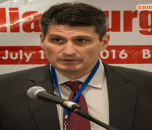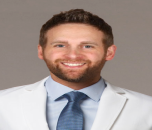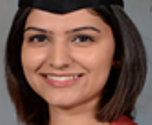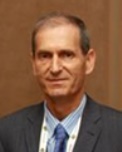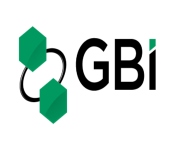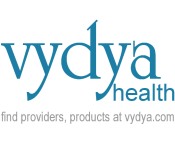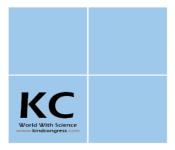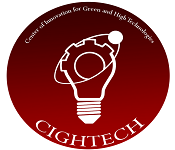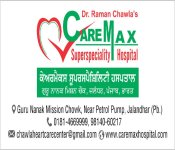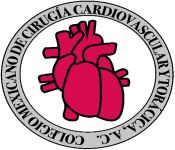Theme: Modern Evolution in the field of Cardiology and Cardiac Health
Heart Conference 2019
- Welcome Message
- About Conference
- Sessions/Tracks
- Market Analysis | Heart Conference 2019 | Sydney
- Past Conference Report
Welcome Message
Heart Conference 2019
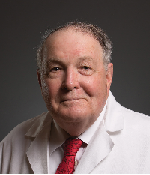
Dear Colleagues, Scientists and Friends,
5th World Heart Congress
March 27-28, 2019
Greetings to all who will attend the “Modern Evolution in the Field of Cardiology and Cardiac Health” events at the 5th World Heart Congress, March 27-28, 2019 in Sydney, Australia. The conference will bring together Cardiologists, Cardiology Educators, Research Scientists, Students, Nurses and the business community that supports Cardiovascular Medicine.
I believe you will find the updates and the new developments in Cardiovascular Medicine that will be reviewed at this Heart Congress very usefull in the future in your cardiovascular practice and basic and clinical research programs. I wish each of you a very successful and productive Congress experience.
Respectfully,

Dr. James T. Willerson, MD
President Emeritus, Texas Heart Institute
Former Editor of AHA Journal, Circulation
Professor of Medicine, University of Texas MD Anderson Cancer Center
Adjunct Professor, McGovern Medical School at UTHealth
Adjunct Professor, Baylor College of Medicine
Conference Series llc Ltd welcomes you at 5th World Heart Congress from March 27 -28, 2019 at Sydney, Australia.
Heart conference 2019 welcomes you at 5th World Heart Congress on March 27 - 28, 2019 at Sydney, Australia which melds brief keynote presentations, speaker talks, Exhibition, Symposia, and Workshops. World Heart conference is a unique meeting that unites cardiologists in order to pursue a holistic approach to understanding the concepts in the field cardiac Research. As a leader in the emerging multidisciplinary field of Cardiology, Heart conference 2019 has set the standard in the rapidly growing field of cardiology that encourages a broad spectrum of knowledge for improved practice and patient care in cardiac Research.
Heart Conference 2019 is one of the Cardiology meetings which will be visited by all the prestigious cardiologists, cardiology educators, fiery inspectors, postgraduates, affiliations, business meanders under a solitary rooftop. This Cardiology conference or rather all Cardiology meeting 2019, cardiology events, Cardiology meetings will help in frameworks organization, B2B teaming up amidst specialists and academicians. We have dealt with various compelling cardiology events and cardiology gatherings and develops incredible relations bringing the researchers and associations together. Cardiology conferences, cardiologist get-togethers and cardiology events are crucial for the essential people to think about the most basic bit of human body.
Heart Conference 2019 will join world-class teachers, scientists and cardiologists to discuss methodology for ailment remediation for heart, Electrocardiography, Heart Failure, Nuclear Cardiology. Cardiology conferences, cardiology meetings are planned to give varying and stream preparing that will keep helpful specialists next to each other of the issues impacting the expectation, finding and treatment of cardiovascular contamination. The assembling will be dealt with around the subject " Modern Evolution in the field of Cardiology".
ConferenceSeries llc Ltd deals with a meeting course of action of 1000+ Global Events thorough of 300+ Conferences, 500+ Upcoming and Previous Symposiums and Workshops in USA, Europe and Asia with sponsorship from 1000 more sensible social requests and disseminates 700+ Open get to journals which contains more than 30000 unmistakable personalities, reputed specialists as article board people.
Target Audience:
• Various Societies and their members
• Institutes-Medical Schools Students
• Software making associations
• Manufacturing Medical Devices Companies
Why Sydney, Australia?
The current survey on number of persons with cardiovascular and cardiac disease manifestations in the Australia says that, although the mortality from cardiovascular disease (CVD) in our country has declined, its disease burden remains high. Council on Cardiovascular Nursing and Allied Professions (CCNAP) main objective is to support nurses and allied health professionals throughout Oceania to deliver the best possible care to patients with cardiovascular disease and their families. Nurses and allied health professionals play a pivotal role in Cardiac care. Interventions developed, tested and implemented by nurses and allied health professionals can assist patients to prevent, adjust to and recover from Cardiac illness. In CCNAP you will find a team of dedicated professionals, eager to support you in the delivery of excellent cardiovascular care. Whether you are working in practice, education or research, they welcome you and encourage you to join they Council. They are committed to your professional development.
Conference Series llc Ltd welcomes you at 5th World Heart Congress from March 28 -29, 2019 at Osaka, Japan.
Heart conference 2019 welcomes you at 5th World Heart Congress on March 28 - 29, 2019 at Osaka, Japan which melds brief keynote presentations, speaker talks, Exhibition, Symposia, and Workshops. World Heart conference is a unique meeting that unites cardiologists in order to pursue a holistic approach to understanding the concepts in the field cardiac Research. As a leader in the emerging multidisciplinary field of Cardiology, Heart conference 2019 has set the standard in the rapidly growing field of cardiology that encourages a broad spectrum of knowledge for improved practice and patient care in cardiac Research.
Track 1: Heart Diseases
Heart disease is identified by destruction in one of the four heart valves: the mitral, aortic, tricuspid or pulmonary. The mitral and tricuspid valves control the flow of blood between the atria and the ventricles (the upper and lower chambers of the heart). The pulmonary valve controls the blood flow from the heart to the lungs, and the aortic valve governs blood flow between the heart and the aorta, and thereby the blood vessels to the rest of the body. The mitral and aortic valves are the ones most frequently affected by valvular heart disease.
- Ischemic Heart Disease
- Congenital Heart Disease
- Peripheral Vascular Disease
- Cerebrovascular Disease (Stroke)
- Cardiovascular Disease and the Pregnant Patient
Track 2: Heart Regeneration
The human heart is continually operating as a muscular pump, contracting, on average, 80 times per minute to propel 8000 liters of blood through body tissues each day. Whereas damaged skeletal muscle has a profound capacity to regenerate, heart muscle, at least in mammals, has poor regenerative potential. This deficiency is attributable to the lack of resident cardiac stem cells, combined with roadblocks that limit adult cardiomyocytes from entering the cell cycle and completing division. Insights for regeneration have recently emerged from studies of animals with an elevated innate capacity for regeneration, the innovation of stem cell and reprogramming technologies, and a clearer understanding of the cardiomyocyte genetic program and key extrinsic signals. Methods to augment heart regeneration now have potential to counteract the high morbidity and mortality of cardiovascular disease.
Track 3: Cardiomyopathy and Heart Failure
Cardiomyopathy, also called dilated cardiomyopathy, the heart becomes expanded and weakened and inadequate to pump effectively. The many causes of heart failure is cardiomyopathy. Heart failure occurs when the heart does not pump strongly enough to meet the needs of the body. If the heart doesn't pump with the force needed, the body's tissues will not get enough oxygen. Heart failure develops gently as the heart muscle weakens. If the right side of the heart is affected, the heart is unable to pump adequate blood to the lungs to be oxygenated. If the left side of the heart is affected, it is unable to pump enough blood to the rest of the body. In most cases, heart failure affects both left and right side, but it can occur on just one side.
Track 4: Coronary heart diseases (CAD)
Coronary artery disease (CAD), also known as ischemic heart disease. Coronary heart disease is a common term for the buildup of plaque in the heart’s arteries that could lead to heart attack. With coronary artery disease, plaque first grows within the walls of the coronary arteries until the blood flow to the heart’s muscle is limited. It may be chronic, narrowing of the coronary artery over time and limiting of the blood supply to part of the muscle. Or it can be acute, resulting from a sudden rupture of a plaque and formation of a thrombus or blood clot. A common symptom is chest pain or discomfort which may travel into the shoulder, arm, back, neck, or jaw.
Track 5: Cardiovascular Surgeries
Cardiovascular (heart) surgery is surgery on the heart or great vessels performed by cardiac surgeons. Frequently, it is done to treat complications of ischemic heart disease, correct congenital heart disease, or treat valvular heart disease from various causes including endocarditis, rheumatic heart disease and atherosclerosis.
- Coronary Artery Bypass
- Valve repair or replacement
- Arrhythmia Surgery
- Aneurysm Repair
- Heart Transplantation
Track 6: Obesity & Stroke
Obesity can increase the risk of stroke due to inflammation caused by excess fatty tissue. This can lead to difficulty in blood flow and an increased risk of blockage, both of which can cause strokes. It's also a major cause of gallstones, osteoarthritis and respiratory problems. Having diabetes or pre-diabetes puts one at increased risk for heart disease and stroke. One can lower its risk by keeping the blood glucose (also called blood sugar), hypertension, and blood cholesterol close to the recommended target numbers the levels suggested by diabetes experts for good health. Two of the best ways to lower your risk of stroke are by eating a heart healthy diet with plenty of fruits and vegetables, eating sensible portions and being physically active on a regular basis.
Track 7: Cardiometabolic Health and Diabetes
Cardiometabolic disorders are assemblage of health circumstances associated with cardiovascular disease and diabetes. The morbidity and mortality severity increased clinical attention to address risk factors predisposing individuals to these cardiovascular disorders. Diabetes affects this vital function as prolonged, poorly controlled blood glucose levels increase the risk of the body's blood vessels narrowing or becoming blocked. The medical conditions and their related risk-factors can control the complications by evidence-based treatments while improving health literacy.
- Diabetic cardiomyopathy
- Hypertension
- Abnormal cholesterol and high triglycerides
- Pre-diabetes
Track 8: Pediatric Cardiology
Pediatric Cardiology plays a major role in the diagnosis of congenital heart defects, performing diagnostic procedures such as echocardiograms, cardiac catheterizations, and for the ongoing management of the sequel of heart disease in infants, children and adolescents. In childhood, a disorder which involves both the heart and lungs problems, called Pediatric Cardiopulmonary disease. Epicardial adipose tissue (EAT) is the visceral fat deposit over the heart and is often increased in obese subjects. EAT is connected to Cardio Metabolic risk factors and non-alcoholic fatty liver disease (NAFLD) in adults, but this relationship is not well known in children. (MI) Myocardial infarction is rare in childhood and adolescence. Nursing and care for pediatric cardiac patients also plays an important role for the cure of pediatric cardiac patients.The discussion about the widespread problem of the baby heart diseases as Myocarditis, Hypertension, Cardiomyopathy, Heart Murmur, Hypoplastic Left Heart Syndrome, Pericarditis Effusion, Cardiac Arrest, Arrhythmogenic Right Ventricular Dysplasia, Cyanotic Heart Disease, and Pediatric Arrhythmia.
- Pediatric Heart Transplantation
- Pediatric Atherosclerosis
- Pediatric Eisenmenger Syndrome
- Pediatric cardiac tumors
- Specific congenital heart defects
Track 9: Cardiac Nursing
Cardiovascular nursing is a specialty that works with patients who suffer from numerous conditions of the cardiovascular system. Cardiac nurses, also called cardiovascular nurses or cardiology nurses, are registered nurses (RNs) who have specialized in the cardiovascular system. They work with patients who have heart problems by following the treatment plan a cardiologist assigns, monitoring patient progress and administering medication to help the healing process.
Cardiovascular nurses facilitate treat conditions like unstable angina, myocardial infarction, cardiomyopathy, coronary artery disease, cardiac dysrhythmia and congestive heart failure under the direction of a heart specialist (cardiologist). Cardiovascular nurses perform postoperative care on a stress test evaluation, cardiac monitoring, surgical unit, health assessments and vascular monitoring. Cardiovascular nurses must possess specialized skills including defibrillation, electrocardiogram monitoring and medication administration by continuous intravenous drip.
- Cardiovascular nursing
- Pediatric cardiac nursing
- Telemetry care
- Cardiac surgery nursing
- Electrophysiology
- Stress test evaluations
- Cardiac assessment nursing
Track 10: Cardiac Pharmacology
Cardiovascular pharmacology deals with the medication of cardiac diseases. Cardiac Pharmacology is for patients with cardiac diseases, and the different drugs associated with cardiovascular therapies. The Cardiac Drugs are used to treat conditions of the heart or the circulatory or vascular system. Many classes of cardiovascular agents are available to treat the various cardiovascular conditions. In this sub topic we have Sodium, potassium, calcium channel blockers, ACE-inhibitors and Cardiac biomarkers. There are many types of cardiovascular drugs in the market that include Cardiac glycosides, antiarrhythmic agents, antianginal agents and antihypertensive agents.
- Cardiovascular drugs
- Drug therapy for systemic hypertension
- Cardiac Medications’
- Cardiovascular drugs market analysis
Track 11: Clinical Trials in Cardiology
Clinical trials are research-oriented study that investigates whether a medical methodology or device is safe for use and effective for humans being. These studies will show that medical approaches work best for certain diseases or groups of individuals. The available Clinical trials produce data is best for health care decision making. A clinical trial will help to find a new strategy, treatment or device. There are four possible outcomes from a clinical trial. Positive trial, Non-inferior trial, Inconclusive trial, Negative trial.
Track 12: Women & Heart Disease
Although heart disease may often be thought of as a problem for men, heart disease is the most common cause of death for both women and men. One challenge is that some heart disease symptoms in women may be different from those in men. Fortunately, women can take steps to understand their unique symptoms of heart disease and to begin to reduce their risk of heart disease. The most common heart attack symptom in women is some type of pain, pressure or discomfort in the chest. But it is not always severe or even the most prominent symptom, particularly in women. And, sometimes, women may have a heart attack without chest pain.
- Heart disease and stroke prevention in women
- High blood pressure and women
- Premature ventricular contractions
- Premature atrial contractions
- Hormone replacement therapy
- Coronary microvascular disease (MVD)
- Mental stress and depression
- Pregnancy complications
- Sinus node dysfunction
Track 13: Case Reports on Cardiology
A case report on Cardiology gives an appropriate convention for all cardiologists by providing their important clinical cases of late occurrence. Studying from medical cases provides valuable experience for students, clinicians, and paramedical staff -members. Rare medical reports and conditions discovered through the latest methods of examination are energized. Diagnostic methods from medical cases and the interpretation of symptoms is significant to train and burgeon the thought processes which are being used in the clinical field.
Track 14: Sports and Exercise Cardiology
Sports and Exercise Cardiology is associated with the cardiovascular care of athletes and exercising individuals of all ages, advancing the knowledge through fostering education, clinical expertise and research. sports medicine has contributed to include not only competitive athletes but also anyone who exercises (amateur or professionals). Sports medicine, also known as sport and exercise medicine (SEM) is a branch of medicine that deals with physical fitness and the treatment and prevention of injuries related to sports and exercise. The societal and media response to such tragic deaths by an athlete garners negative publicity, although the general benefits of exercise outweigh the risk. Commonly, sudden cardiac death is triggered by a malignant tachyarrhythmia such as ventricular fibrillation (VF) or ventricular tachycardia degenerating into VF. Cardiologists face various challenges in evaluating the athletes due to complex individual cardiovascular demand and adaptations imposed by exercise.
- Circadian rhythm
- Cardiovascular risk in athletes
- Cardiac exercise science
- Exercise stress testing
Track 15: Veterinary Cardiology
A veterinary cardiologist is a specialist that has advanced training in the heart and circulatory system. Veterinary Cardiology generally deals with the study and treatment of disease condition of cardiovascular system in cats and dogs blood vessels. To become a board certified veterinary cardiologist a veterinarian usually completes a one-year internship followed by extensive specialized training in an approved residency training program. The heart problems may include canine and feline congestive heart failure, hypertension, dilated and hypertrophic cardiomyopathy and valvular disorders. Due to the interrelation in the function of pet's heart and lungs, veterinary cardiologists are also knowledgeable about lung diseases as well as diseases of the chest cavity.
- Diet and exercise for pets with heart disease
- Diagnostic tests and treatment for cardiac problems in animals
- Clinical trials in veterinary medicine
- Specific cardiac diseases in animals
- Cardiac surgery for small animals
Track 16: Cardiovascular Diseases (CVD)
The term "heart disease" is often used interchangeably with the term "cardiovascular disease." Cardiovascular disease generally refers to conditions that involve narrowed or blocked blood vessels that can lead to a heart attack, chest pain (angina) or stroke. Cardiovascular disease includes coronary artery diseases (CAD) such as angina and myocardial infarction (commonly known as a heart attack). Other heart conditions, such as those that affect your heart's muscle, valves or rhythm, also are considered forms of heart disease.
- Hypertensive heart disease
- Rheumatic heart disease
- Cardiomyopathy
- Heart arrhythmia
- Congenital heart disease
- Valvular heart disease
- Peripheral artery disease
- Thromboembolic disease
- Venous thrombosis.
Track 17: Nano Technology in Cardio Science
Nanotechnology is an area of science that involves working with materials and devices on a nanoscale level. Nanotechnology will offer the tools to explore the frontiers of medical science at a cellular level. It can provide novel techniques in the treatment of a multitude of diseases, including cardiovascular disorders. The tools offered by nanotechnology in medical and cardiac sciences are in the areas of diagnosis, imaging, and tissue engineering. Applying nanotechnology methods has offered insight into the potential benefits of nanotechnology in cardiovascular sciences. Although the benefits of nanotechnology transcend all specialties of medicine, one of the important applications of nanomedicine is in cardiovascular sciences.
Track 18: Electrocardiography
Electrocardiography (ECG or EKG) is the process of recording the electrical activity of the heart over a period using electrodes placed on the skin. These electrodes detect the tiny electrical changes on the skin that arise from the heart muscle's electrophysiologic pattern of depolarizing and repolarizing during each heartbeat. It is a very commonly performed cardiology test. Electrocardiography also known as EKG or ECG, is a simple, painless test that records the heart's electrical activity. To understand this test, it helps to understand how the heart works. With each heartbeat, an electrical signal spreads from the top of the heart to the bottom. As it travels, the signal causes the heart to contract and pump blood. The process repeats with each new heartbeat. The heart's electrical signals set the rhythm of the heartbeat.
Heart Conference 2019 aims to discover advances in health practice, management and education in relation to health disparities as well as heart disease describes a range of conditions that affect your heart. Diseases under the heart disease umbrella include blood vessel diseases, such as coronary artery disease; heart rhythm problems (arrhythmias); and heart defects you're born with i.e. congenital heart defects, Rheumatic heart disease, Hypertensive heart disease, Ischemic heart disease, Hypertension and many more. According to the reports, the healthcare services market in the GCC is expected to grow from AED 66 billion (US $18 billion) in 2008 to AED 175-202 billion (US $47-55 billion) by 2020.
According to WHO (World Health Organization) and the CDC, heart disease is the leading cause of death in the UK, USA, Canada and Australia. The number of US adults diagnosed with heart disease stands at 26.6 million (11.3% of adult population), 23.5% of all deaths in the USA today are caused by heart disease. According to the latest WHO data published in May 2017 Coronary Heart Disease Deaths in Australia reached 87,881or 16.86% of total deaths. The age adjusted Death Rate is 161.43 per 100,000 of population ranks Australia 37 in the world.
Heart Congress 2018
2nd World Heart Congress was hosted by the Conference Series LLC at Tokyo, Japan during May 14- 16, 2018 with the theme “A Changed Outlook in Cardiology and Healthcare”.
The conference marked its start by an opening ceremony which included introduction by the Honorable Guests and the Members of Keynote Forum. All the speakers have extended their contribution in the form of highly informative presentations to lead the conference to the ladder of success.
Conference Series extends its warm gratitude towards all the Participants, Eminent Speakers, Young Researchers, Delegates and Students.
We would like to specially thank the following people who laid the foundation for the event’s success.
Organizing Committee Members:
- Damien Byas- Center for Healthcare and Organizational Research, USA
- Aris Lacis- Children’s Clinical University Hospital, Latvia
- Carola Y Förster- University of Wurzburg, Germany
- Mary Shibuya - Gunma University, Japan
- Michiaki Nagai- Hiroshima City Asa Hospital, Japan
- Galya Atanasova- Medical University Pleven, Bulgaria
- Satoru Takeno – Kindai University School of Medicine, Japan
- Beder Gustavo Farez –Italia Clinic in San Luis, Argentina
Keynote Speakers:
- Damien Byas- Center for Healthcare and Organizational Research, USA
- Aris Lacis- Children’s Clinical University Hospital, Latvia
- Jacob Ostrowsky- Rainbow Babies & Children’s Hospital, USA
- Marc-Alexander Ohlow- Zentralklinik Bad Berka, GermanyUniversity, Japan
- Ashish K Saxena- Diabetes and Heart Centre, India
- Gad Keren- Tel Aviv Medical Center, Israel
- Galya Atanasova Medical University Pleven, Bulgaria
Conference Highlights
- Heart Diseases
- Heart Regeneration
- Cardiomyopathy and Heart Failure
- Coronary heart diseases (CAD)
- Cardiovascular Surgeries
- Obesity & Stroke
- Cardiometabolic Health and Diabetes
- Pediatric Cardiology
- Cardiac Nursing
- Cardiac Pharmacology
- Clinical Trials in Cardiology
- Women & Heart Disease
- Case Reports on Cardiology
- Sports and Exercise Cardiology
- Veterinary Cardiology
- Cardiovascular Diseases (CVD)
- Nano Technology In Cardio Science
- Electrocardiography
To share your views and research, please click here to register for the Conference.
To Collaborate Scientific Professionals around the World
| Conference Date | March 27- 28, 2019 | ||
| Sponsors & Exhibitors |
|
||
| Speaker Opportunity Closed | |||
| Poster Opportunity Closed | Click Here to View | ||
Useful Links
Special Issues
All accepted abstracts will be published in respective Our International Journals.
- Journal of Clinical & Experimental Cardiology
- Cardiovascular Pharmacology: Open Access
- Journal of Cardiovascular Diseases & Diagnosis
Abstracts will be provided with Digital Object Identifier by





